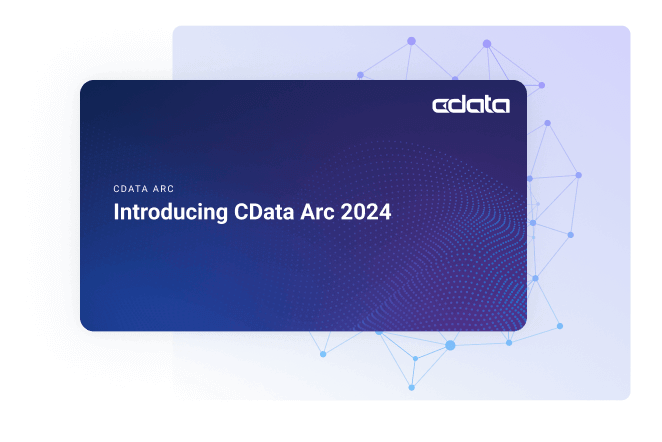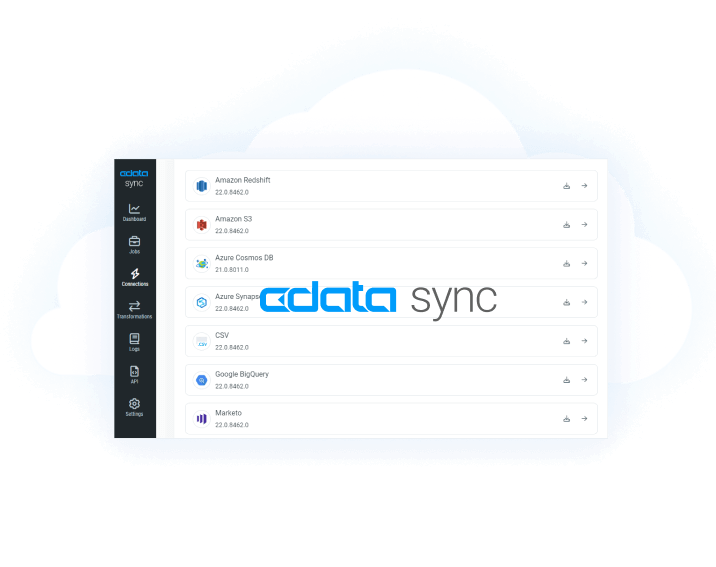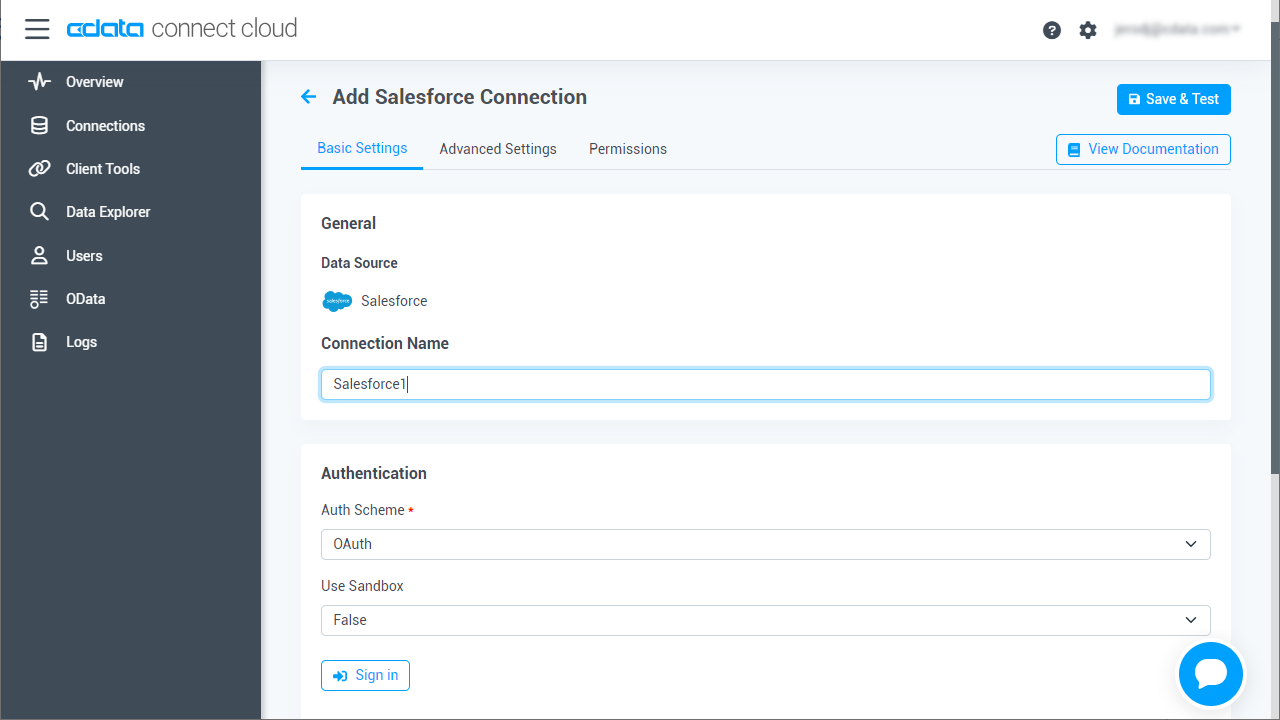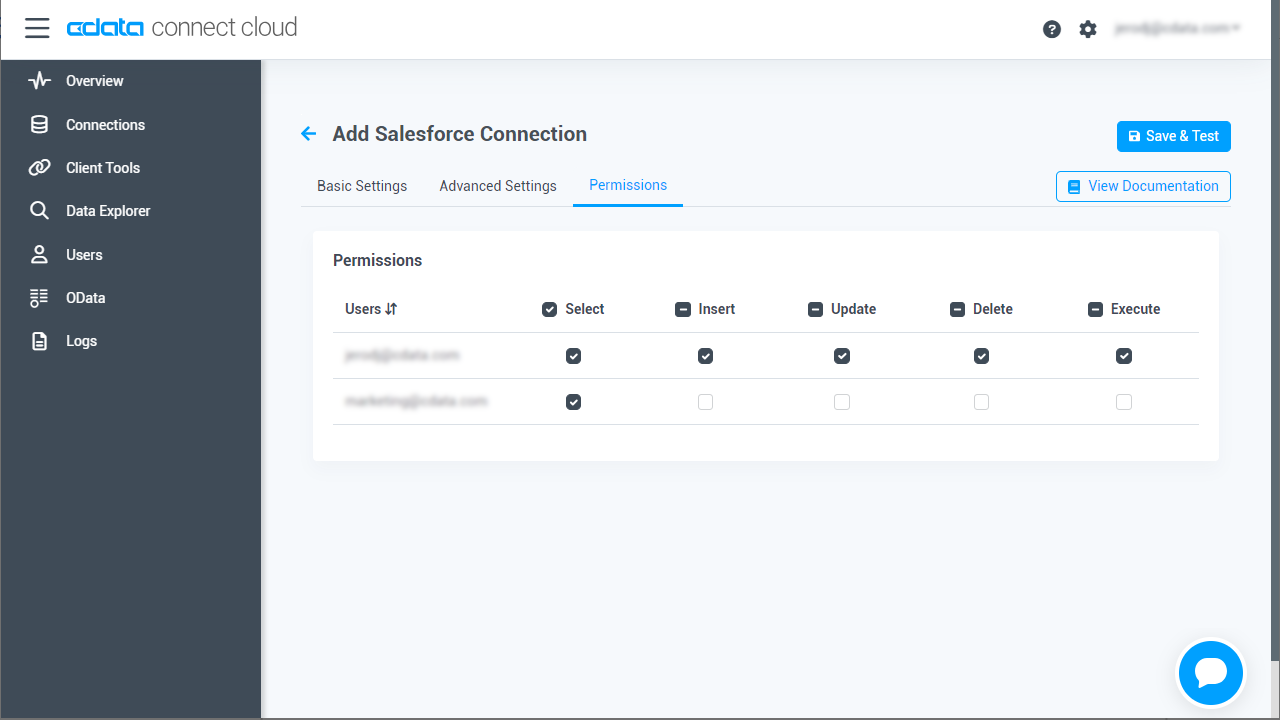Discover how a bimodal integration strategy can address the major data management challenges facing your organization today.
Get the Report →Build Semantic Layer Views for Microsoft Dataverse Data in APOS Live Data Gateway
Use the CData Connect Cloud and APOS Live Data Gateway to build Semantic Layer Views for Microsoft Dataverse data.
APOS Live Data Gateway (LDG) serves as a data connection and data transformation solution, facilitating live data connectivity and broadening data source possibilities for SAP Analytics Cloud and other SAP solutions. When integrated with CData Connect Cloud, users have the capability to construct semantic layer views for real-time access to Microsoft Dataverse data, enabling real-time analytics on Microsoft Dataverse in a manner akin to working with a relational database.
CData Connect Cloud offers a dedicated SQL Server interface for Microsoft Dataverse, enabling data querying directly from Microsoft Dataverse without the need to replicate data to a native database. With pre-optimized data processing capabilities, CData Connect Cloud efficiently directs all supported SQL operations, including filters and JOINs, directly to Microsoft Dataverse. This harnesses server-side processing to swiftly retrieve the requested Microsoft Dataverse data.
Configure Microsoft Dataverse Connectivity for APOS Live Data Gateway
Connectivity to Microsoft Dataverse from APOS Live Data Gateway is made possible through CData Connect Cloud. To work with Microsoft Dataverse data from APOS Live Data Gateway, we start by creating and configuring a Microsoft Dataverse connection.
- Log into Connect Cloud, click Connections and click Add Connection
- Select "Microsoft Dataverse" from the Add Connection panel
-
Enter the necessary authentication properties to connect to Microsoft Dataverse.
You can connect without setting any connection properties for your user credentials. Below are the minimum connection properties required to connect.
- InitiateOAuth: Set this to GETANDREFRESH. You can use InitiateOAuth to avoid repeating the OAuth exchange and manually setting the OAuthAccessToken.
- OrganizationUrl: Set this to the organization URL you are connecting to, such as https://myorganization.crm.dynamics.com.
- Tenant (optional): Set this if you wish to authenticate to a different tenant than your default. This is required to work with an organization not on your default Tenant.
When you connect the Common Data Service OAuth endpoint opens in your default browser. Log in and grant permissions. The OAuth process completes automatically.
![Configuring a connection (Salesforce is shown)]()
- Click Create & Test
-
Navigate to the Permissions tab in the Add Microsoft Dataverse Connection page and update the User-based permissions.
![Updating permissions]()
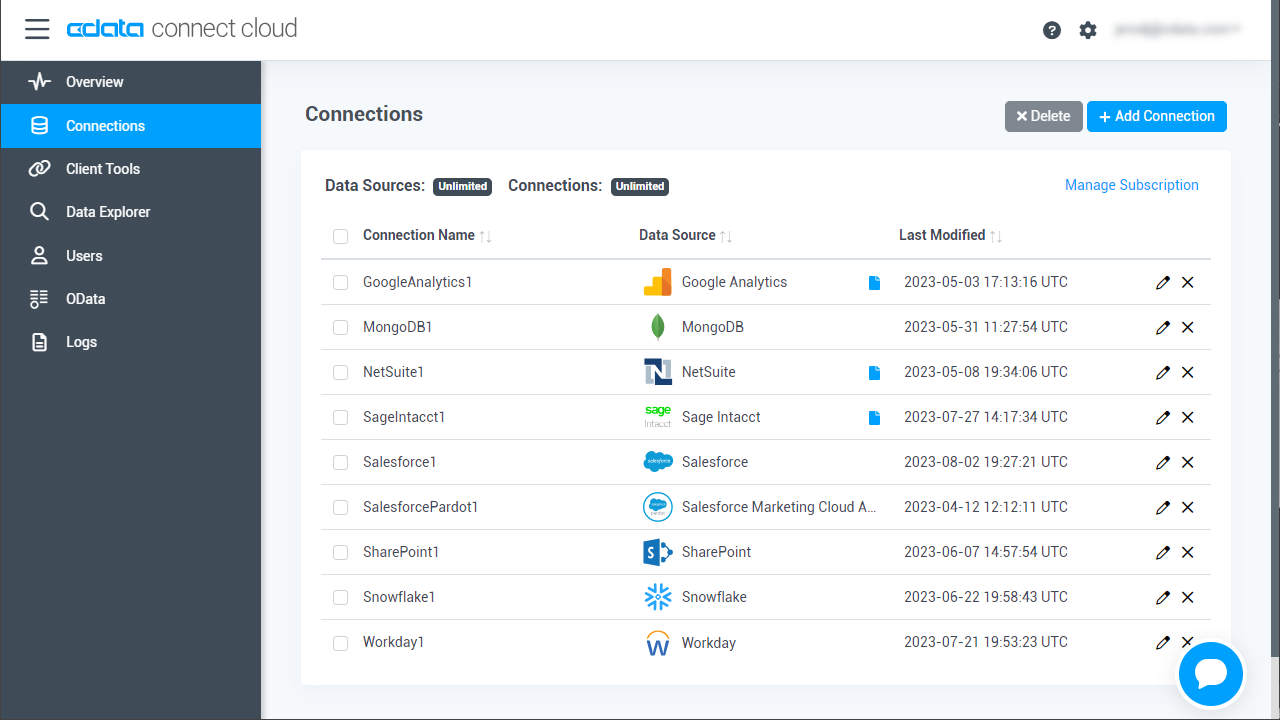
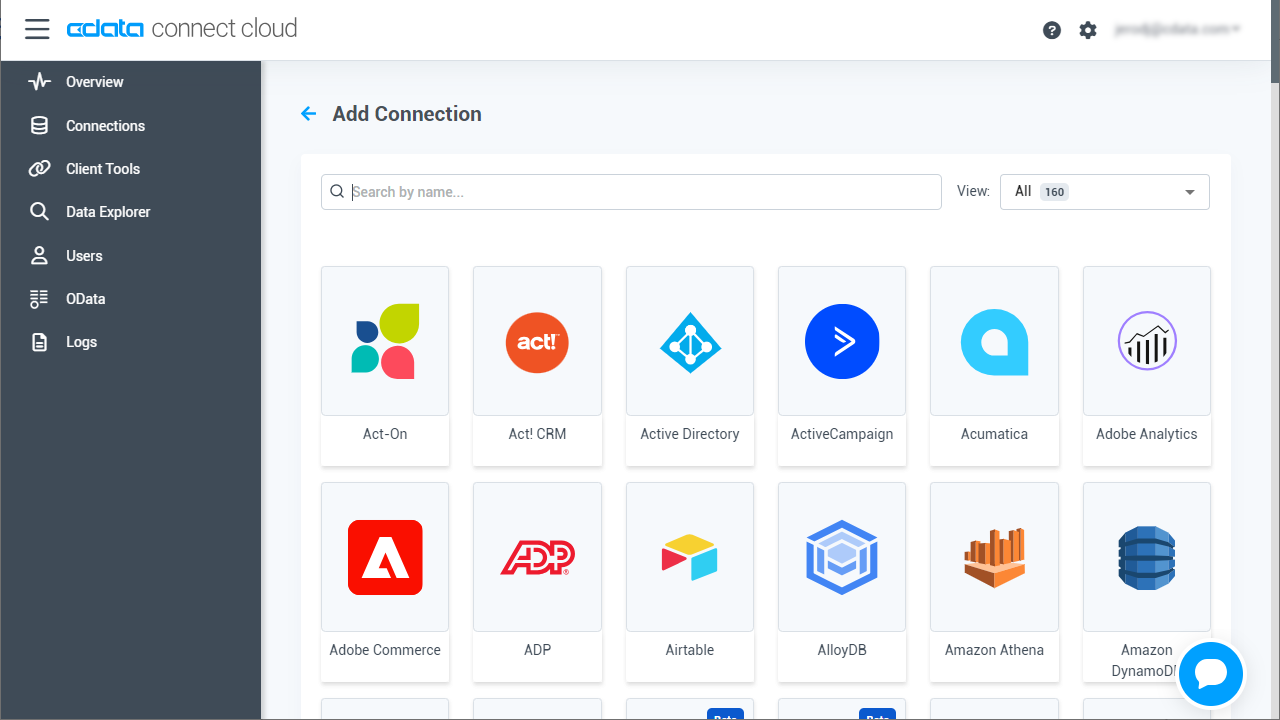
Add a Personal Access Token
If you are connecting from a service, application, platform, or framework that does not support OAuth authentication, you can create a Personal Access Token (PAT) to use for authentication. Best practices would dictate that you create a separate PAT for each service, to maintain granularity of access.
- Click on your username at the top right of the Connect Cloud app and click User Profile.
- On the User Profile page, scroll down to the Personal Access Tokens section and click Create PAT.
- Give your PAT a name and click Create.
- The personal access token is only visible at creation, so be sure to copy it and store it securely for future use.
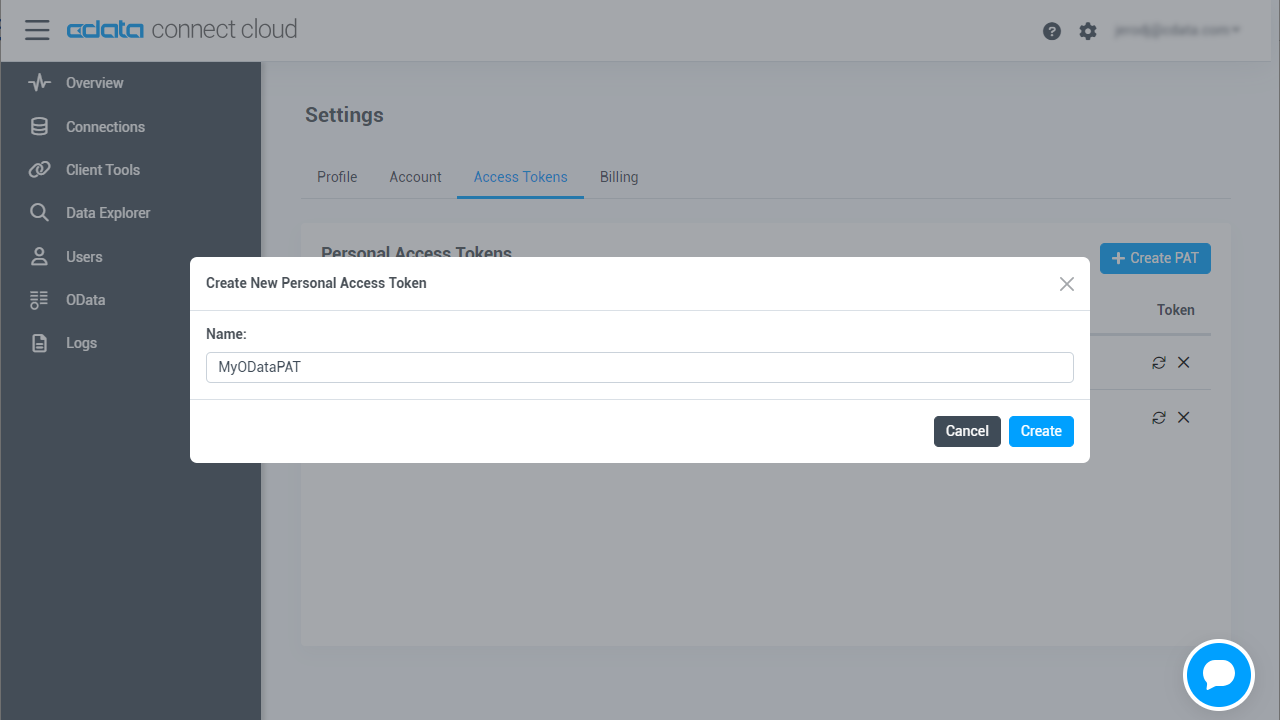
Connecting to Microsoft Dataverse & Creating a Semantic Layer View
After configuring the connection in CData Connect Cloud you are ready to connect to Microsoft Dataverse in the Live Data Gateway Admin tool and build a semantic layer view in the Live Data Gateway Web UI.
Configuring the Connection to Microsoft Dataverse
- Log into your APOS Live Data Gateway Manager
![Logging into the APOS LDG Manager]()
- If you haven't already, update your APOS LDG license file
- Click File -> Configurations
- Click on the "..." Menu for the License
- Select the license file from the APOS team that includes your CData Connect Cloud license
- In the APOS Live Data Gateway Manager, click "Add"
- In the APOS Live Data Gateway On the Connection tab, configure the connection:
- Set Data Source to "Database"
- Set Database to "JDBC Generic"
- Set Connection String to a connection string similar to the following, using the name of the connection you configured earlier, e.g.
jdbc:sqlserver://tds.cdata.com:14333;databaseName=CDS1 - Set Driver Class to "com.CData.connect.Driver" (this should be set by default)
![Configuring the Connection (Salesforce is shown).]()
- Click Test Connection
- Click Save
- Give your connection a unique prefix (e.g. "cds")
- Highlight the newly created connection and click File -> "Approve Users For Web UI"
![Approving Users For Web UI.]()
- Approve the appropriate DB users to create views and click "Save"
![Configuring which DB users can create views.]()
At this point, we are ready to build our semantic layer view in the Live Data Gateway Web UI.
Creating a Semantic Layer View
- In your browser, navigate to the APOS Live Data Gateway Portal
- Select a Connection (e.g. "cds")
- Set User Name and Password to your Connect Cloud username and PAT .
- Click "Login"
![Connecting from the Web UI (Salesforce is shown).]()
- Once connected, click "Semantic Layer" to create a new semantic layer view
- Click "New Semantic Layer View"
![Adding a new semantic layer view.]()
- Set the Semantic Layer View Prefix and Semantic Layer View Name
![Setting the semantic layer view prefix and name.]()
- Click "Step 2"
- Select the table(s) and column(s) you wish to include in your view
![Selecting table(s) and column(s).]()
- Click "Step 3"
- Select the Measures from the available table columns
![Selecting the measure(s).]()
- Click "Step 5" (we skipped the "Extra Dimensions" step)
- Add any Variable Prompts
- Click "Step 6"
- Define any Table Joins
- Click "Review"
- Review you semantic layer view and click "Save"
![Saving the semantic layer view.]()
With the Semantic Layer View created, you are ready to access your Microsoft Dataverse data through the APOS Live Data Gateway, enabling real-time data connectivity to Microsoft Dataverse data from SAP Analytics Cloud and other SAP solutions.
Get CData Connect Cloud
To get live data access to 100+ SaaS, Big Data, and NoSQL sources directly from your SQL Server database, try CData Connect Cloud today!

